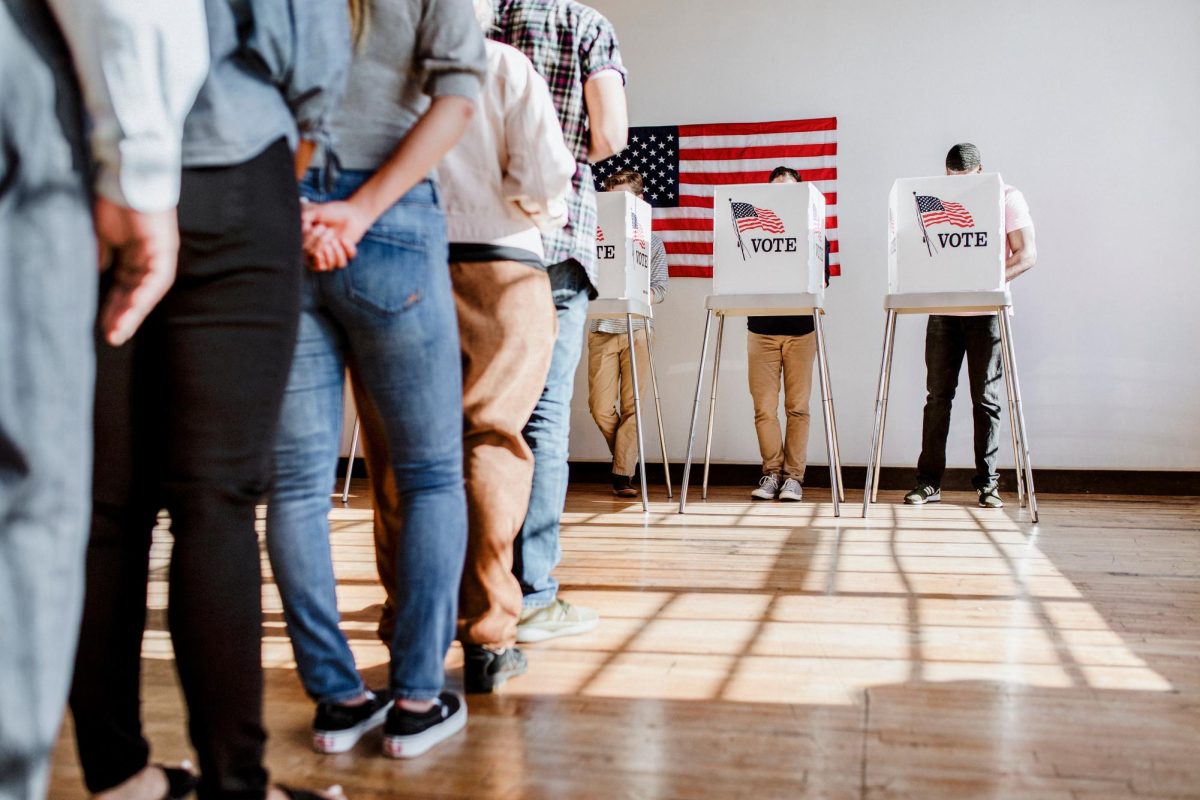As the 2024 election season heats up, so does the academic year for college students across California. This fall, college students will be filling out more than just Scantrons.
In addition to a highly anticipated presidential election, California voters will see 10 ballot measures when they enter the polls, ranging from housing affordability to healthcare.
Voters will also see propositions on climate improvement projects, increased funding for public education facilities, crackdowns on drug and theft crimes, and more. We’ve compiled an easy breakdown on all 10 ballot measures to help students understand what they’re voting for on November’s ballot.
Proposition 2
Prop 2 would allow the state to allocate $10 billion across K-12 public schools and community colleges.
These borrowed bonds would help improve buildings and other educational facilities, citing unsafe conditions.
A large percentage of the funds will go toward renovating and repairing existing buildings. Funds will also be distributed to new construction projects and new career technical facilities.
Proposition 3
This ballot measure seeks to solidify the right to same-sex marriage by amending the California Constitution.
Same-sex marriage is currently protected by the federal courts, but this constitutional amendment will enshrine the right in California as a precaution to potential Supreme Court reconsiderations.
Prop 3 would remove the definition of marriage as “between a man and woman” and replace it with broader language, effectively overturning Proposition 8.
Proposition 4
Prop 4 would authorize $10 billion in bonds for various climate improvement and clean energy projects.
Proponents seek to improve drinking water quality, prevent wildfires, and protect California’s nature. Some money will be allocated to flood prevention through dam restoration and stormwater collection, a weather phenomenon San Diego residents have become all-too familiar with.
Funds would also be used to combat the effects of climate change on vulnerable communities and agriculture.
Proposition 5
This measure would lower the voting requirement for local bond approval from two-thirds to 55%.
This would make it easier for local governments to borrow funds for public infrastructure projects and affordable housing constructions.
Proposition 6
Prop 6 would amend the California Constitution to prohibit involuntary work for incarcerated individuals. From this measure, work assignments would no longer serve as punishment for a crime and inmates would not be punished for refusing to work.
To do so, the current provision would be removed.
It would allow for voluntary work assignments in exchange for reduced sentencing.
Proposition 32
This measure seeks support for a minimum wage increase.
If approved, employers with 26 or more employees would pay $17 an hour for the rest of 2024 and $18 an hour in 2025. Employers with 25 or fewer employees would pay $17 an hour in 2025 and $18 an hour in 2026.
In San Diego, the minimum wage is $16.85, 85 cents higher than the state’s minimum wage. For fast food workers in California, the minimum wage is $20. Healthcare workers should also expect to see gradual raises by October 15, in an effort by SB 525 to reach a $25 minimum wage for all healthcare sectors by 2033.
Proposition 33
This ballot measure would repeal the Costa-Hawkins Rental Housing Act of 1995, which restricted local rent control laws by exempting single-family homes, condos, and housing built after 1995 from rent control.
Prop 33 would allow local governments to enact rent control orders.
Proposition 34
Prop 34 would require some healthcare providers to spend 98% of their revenue sourced from the Prescription Drug Discount Program on patient care.
This ballot measure would apply to any licensed provider who participates in the federal prescription discount program, whose spending on anything outside patient care has exceeded $100 million over a decade, and who has received 500 or more health violations.
If the qualifying provider does not comply with the reallocated spending, they lose their tax exemption, license, and eligibility for government grants.
Proposition 35
In another healthcare-related measure, Prop 35 would make taxes on managed healthcare insurance plans permanent to support Medi-Cal.
Medi-Cal is California’s version of Medicaid, serving low-income, disabled, and senior citizens. The increased funding would go toward specific services, such as primary care and mental health.
Proposition 36
Lastly, this ballot measure would increase punishments for certain drug and theft crimes.
Under Prop 36, Possession of certain drugs and theft under $950 would be charged as a felony, if it is the offender’s third drug or theft conviction. Currently, these circumstances would receive a misdemeanor charge.
The measure would also create a new crime category for drug possession called “treatment-mandated felony.” A convicted party on his or her third drug offense would be able to submit a guilty plea in exchange for drug treatment.
The measure also requires courts to warn parties convicted of drug possession that a drug distribution resulting in death constitutes a murder charge.






